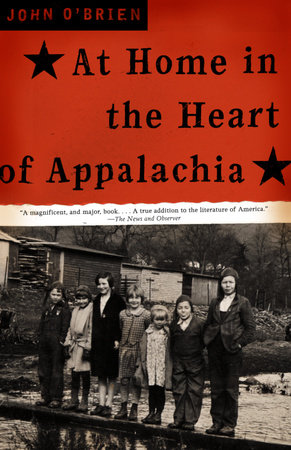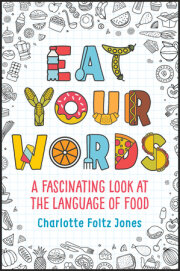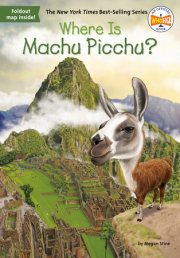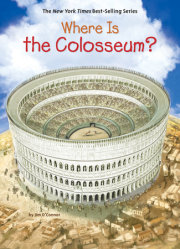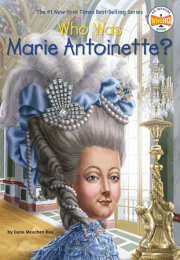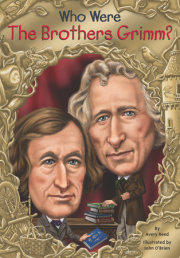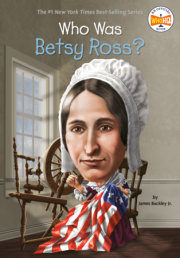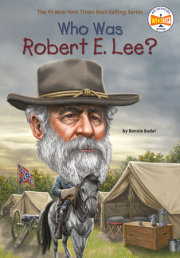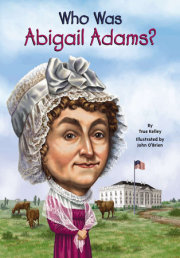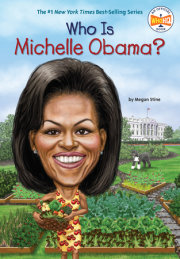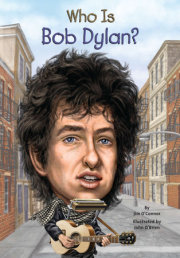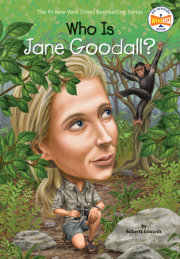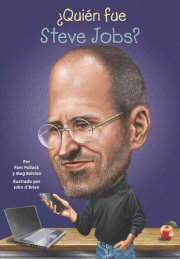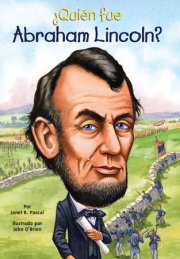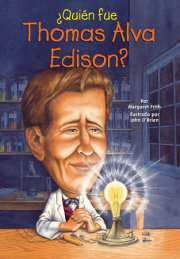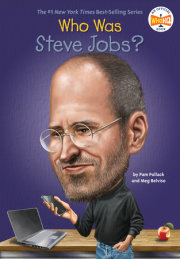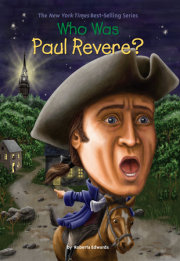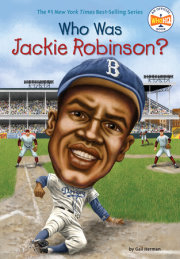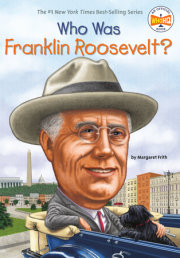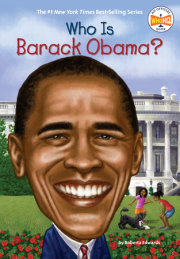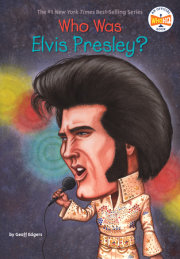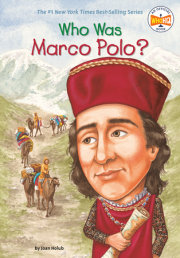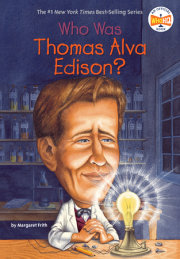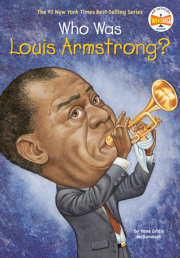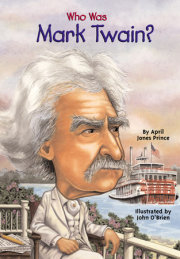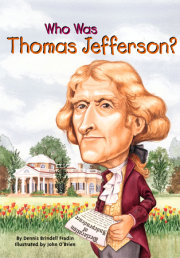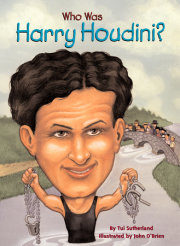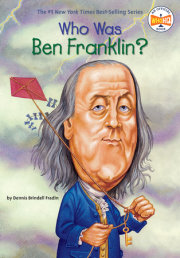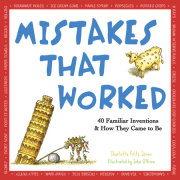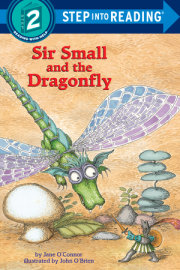From Chapter 1
My Father Takes Me Home
August 1952
On this sweltering day, I'm sitting on the front steps of our house on Greenway Avenue, in southwest Philadelphia. Through the screen door behind me, I hear my two brothers and two sisters complain about the heat. We have spent the afternoon filling paper bags with clothing, picking ripe tomatoes from the garden down the block, checking doors and windows, and scrubbing up. As soon as my father comes home from work, we will leave for Piedmont. I have filled buckets of water for Richard and Lady-my father's prized rabbit hounds that will stay here in the alley-and now all that's left to do is wait for him.
Beyond the curb, the blacktop has become as soft as fudge. Up and down Greenway Avenue the oven-hot air shimmers, turning the colored girls jumping double Dutch into a wavering mirage. Waiting has always been hard for me, but waiting for my father is the hardest. At last he rounds the corner by Mazy's closet-sized grocery store, brown lunch bag in one hand and that tattered, oil-stained cap perched on top of his curly red hair. Once brown, the cap has faded into beige. He does not want a new cap; he brought this one from Piedmont when he moved to the city. As always, when he thinks he is alone and unseen, he frowns and stares into the middle distance-a worried man. No one in the world walks like him; each foot flares out wide to either side, ducklike. My father is a sailor on a ship at sea.
Jumping up I shout, "It's him," and everyone flies around- double-checking windows and doors, turning the water off, unscrewing fuses. After one last look at Lady and Richard we stampede to the old box-turtle Plymouth. Inside the car, my younger brother David begins a litany of good-bye. It's "Good-bye, house, good-bye, porch, good-bye, Beauty"-the striped cat on the porch-"good-bye, Richard, good-bye . . ."
Then older brother Patrick snaps, "Shut up, you idjit." And the first in-car fight begins.
"You're not the boss of this car."
"Oh yeah? Well I'm older and that means . . ."
In the front seat, my father clears his throat and says, "Listen up once." I see his pale blue eyes in the rearview mirror. My father is a gentle, soft-spoken man, but when his voice takes an edge, we listen. He says, "We're gonna start this trip friends and end this trip friends. Right?"
"Right!" we all shout, but my brothers glare at each other.
The peace restored, my father goes through a series of small physical adjustments. He squares his shoulders, adjusts and readjusts his cap, shifts around to find a perfect position in the seat. When everything seems in order, he places a hand on the dashboard, then lowers his head like a priest whispering a prayer. I'm not sure, but he could well be praying. Our old Plymouth is a fourth-hand car, and making it all the way to Piedmont is not certain. At last, he slaps the dashboard and starts the engine. Pulling away from the curb, he shouts, "Off like a dirty shirt!"
On the road after dark, we play buzz, a math game he has taught us. Then he leads us in song: "Good Night, Irene," "In the Cool, Cool, Cool of the Evening," and "Swing Low, Sweet Chariot." We all sing loudly and happily like campers around a fire, but at odd, mismatched moments I hear only my father's voice. He means it when he sings, that's the difference. There is something sad about the way he holds long notes. At times, even happy songs seem touched with melancholy.
Passing through small Pennsylvania towns, we children fall asleep on top of one another like a litter of kittens. I momentarily wake up when my father toots the horn to say, "West, by God, Virginia," as we cross into the state. Hours later, sensing the loss of motion, we all wake up and untangle. Gaping and yawning, we tumble out into the dark town. Across the street from my grandmother's house, a door opens and light pours out. A woman in padded housecoat and hair rollers-at least this is how she appears in memory-calls to a small dog down the block. She does not seem to notice us in the dark. David, who is not quite awake, thinks Grandmother O'Brien is calling him. He runs across the street and through the open door while the woman stands gasping as a perfect stranger rushes in: the O'Briens have come back home.
Both sides of my family, the O'Briens and the Bells, came from this small town. Piedmont, which means foot of the mountain in French, is a paper-mill town on the banks of the Potomac River in northeastern West Virginia. The mountains crowd in tight and houses sit at strange angles on impossibly steep hills. (The cobblestone street on which my Grandmother O'Brien lives is so steep, it occasionally appears as an escalator in my dreams.) Train tracks split Piedmont down the middle. Long lines of open cars, loaded down with coal from the southern part of the state, rumble through town at odd hours of the day and night. Across the Potomac, in Luke, Maryland, the stupendous chimneys of the world's largest paper mill, Westvaco, spew out yellow sulfide smoke. When it rains in Piedmont, the water turns to mild acid that eats the paint from cars and homes. The rank smell has worked its way into furniture, rugs, clothing, pet fur, and women's hair. God knows what it does to human lungs. When I was a boy, the river was dishwater gray. Below the mill, all of the native fish had died and so had the vegetation along the water's edge. On some days, the Potomac smoldered acid fog and the smell of rotten eggs was overwhelming.
My relatives worked at the mill. Each weekday morning my grandparents, aunts, and uncles drove across the metal bridge to work their shift and then drove back home at night. Families paid their bills, fed their children, and kept their homes in good repair. On summer evenings after work, couples sat on porch swings to take the cool night air. In the fall men like my Grandfather Bell and my Uncle Jimmy-a legendary outdoorsman-hunted the woods and fished the streams that were unaffected by the mill's runoff. On Saturday nights beer joints filled up and on Sunday mornings so did the churches. Women like my Grandmother Bell, who was tall and handsome, walked to church in their finery. Their husbands, scrubbed free of the week's mill grime, wore their "go to meet'n" suits and escorted them, walking on the curbside as chivalry required. The high point of the social year was the mill picnic-one day for white people and another for black. My relatives, like most residents, thought Piedmont was special, a good place to live. Concerning the ever-present smell, Grandfather Bell quoted old Mr. Luke, part-owner of the mill, who always said, "It smells like
money to me." My grandfather invariably chuckled when he said this.
My own feelings about the mill, even as a boy, were more ambivalent. It was true, most of my relatives worked there, and on some level, I understood how important that was. But my Grandmother O'Brien stacked paper all day long and came home with razor-thin cuts on both hands. To ward off infection, she soaked them in hot bleach water each night. I can remember seeing her at the kitchen table, hands suspended above a steaming dishpan. The treatments were painful, and Grandmother had to master herself each night. After holding her hands above the pan for half a minute, she closed her eyes, then slowly let her hands sink. A wince of pain was replaced by an expression of acceptance that made me think of saints on holy cards. In my mind, the mill was like purgatory: terrible things happened there.
That vision aside, I have pleasant memories from those Piedmont visits-kitchens crowded with relatives, uncles dropping into a boxer's stance by way of greeting, the sense of being related to half the town. Grandmother Bell had a refrigerator on the back porch filled with small bottles of Coke-"pop," she called it. She kept a wooden bowl on the kitchen table filled with fresh fruit and told us to help ourselves; this was opulence beyond imagination. We spent long afternoons at the town swimming pool a few blocks from the Bells' house, and I dreamed about this all through winter. One of my uncles had a small dog that did wonderful tricks on the sidewalk beside the Bells' house. As I recall, it was a small pug-faced dog that would sit, shake hands, roll over, and play dead on command. The dog's big trick, the "piece of resistance," was to sit on its haunches wearing spectacles with a toy smoking pipe in its mouth. With a flourish my uncle would say, "Winston Churchill!" On every visit, Grandfather Bell told me the same joke: "Oncet there was a sheep born without a nose. How do you think he smelled? Awful, just like all the other sheep." He laughed every time, his pipe clicking against his false teeth. My grandfather was a one-joke man; if you've got a good one, stick with it. I laughed along with him, even after the only thing that was funny was the fact that he was telling the same joke again.
For me, coming home always had to do with language. My mother's ancestors, like most of the people who settled this part of Appalachia in the 1750s, came from Ulster, England, or Germany. Appalachians have always been conservative speakers. For the longest time people in the southern mountains resisted the homogenizing influence of middle-American speech and kept the distinctive accent that developed in the early 1800s. The Scotch-Irish lilt, along with a delight in rich metaphor, prevails. My Piedmont relatives used words like "reckon" and "yonder." People spoke about feeling "poorly" or "dauncy"-worse than poorly, I think. A paper bag was a "poke." Cast-iron frying pans, those old black ones that weighed a ton, were "skillets" or sometimes "spiders." Young lovers went "a-court'n." My Grandfather Bell might say, "The porch needs a-paint'n." Or, "By jacks, look who's a-com'n through the door," placing the "a" before verbs to keep the rhythm in his talk alive. Since the 1950s, television and popular music have weakened Appalachian speech, but it's still here. Mountain talk is highly inflected; it rises and falls like spoken poetry. The only national figure who sounds like my Piedmont relatives is Loretta Lynn, the country singer from Butcher Hollow, Kentucky. (Lynn not only sounds like one of my relatives, she also looks something like my mother.) To my ear, Appalachian speech is music.
Despite pleasant memories, what remains most vivid about those visits, at least now as I look back on them at fifty-six, is the strain between the Bells and the O'Briens and my father's anxiety about being home. The families did not get along, and in fact refused to recognize each other's existence. They never exchanged harsh words-in my presence anyway-but I cannot remember anyone from one family referring to someone from the other by name. It was always, "Will you be having dinner up the hill then?" Or "How long will you be down at the other place?"
I remember driving to the Kroger store with Grandmother O'Brien. My mother sat between my father, who was driving, and Grandmother O'Brien on the passenger side. On the way back, my mother had to speak to her father about something, and so we pulled up beside the Bells' house. As Grandfather Bell approached her window, Grandmother O'Brien became as stiff as a mannequin, staring straight ahead without blinking or making the slightest movement. For some reason, I thought she was attempting a magic trick; if she sat absolutely still and held her breath, she would become invisible. The trick seemed to work because Grandfather Bell spoke to my mother right through Grandmother O'Brien's face, as if she were not there.
The Bells lived in a pleasant brick house in the valley bottom, in a part of town called The Orchard. Like most of Piedmont's quality folk, they were prominent Presbyterians. The O'Briens lived "up the hill"-sometimes "up the mountain"-not far from where the "coloreds" lived. Even as a boy I understood that "up the hill" indicated more than direction. The expression carried unpleasant weight.
My father's ancestors, Catholics, had come from southern Ireland as a result of the first potato famine in the nineteenth century. Catholics were, and still are, a rare and suspect breed in Appalachia. (There was no Catholic church in Piedmont. To attend Sunday mass, we drove across the erector-set bridge into Westernport, Maryland. Catholics from small towns up and down the river did the same.) When my father was a boy, Catholics were also at the bottom of the socioeconomic ladder, and so it is difficult to determine where religious intolerance ended and imaginary class distinctions began. In any case, the families could not abide one another.
Class difficulties played out at mealtime. At the Bells', we sat down at a table covered with a linen tablecloth. Grandmother Bell, who had her white hair tinted blue each week, came to dinner in a housedress that made me think of the Donna Reed Show on television. My Grandfather Bell wore a fresh dress shirt to table each day. There were two forks-a mystery to me-a fancy butter dish, and those odd, fat butter knives. We only occasionally made conversation, rather than talked, and those meals were so quiet the only sound that I remember clearly is the clicking of forks against china.
My father's profound sense of inferiority overcame him at times like that. The fear of saying or doing something that would shame his family terrified him. Sitting stiffly on the edge of his seat, he ner-vously watched my mother's hands from the corner of his eye. I don't think he ate anything at the Bells'. Once, when I asked my mother why he seemed so frightened, she told me about the first time he came to dinner at her house. My father, a skinny, freckle-faced boy, had taken a slice of butter for his dinner roll but ended up with too much on his knife. Frugal as always, he scraped the excess back onto the butter dish while Grandmother Bell watched in horror. My father flushed deep red and began to stammer apologies, which only made things worse. Oddly, I cannot recall any of the food at the Bells'.
I do remember meals at the O'Briens', but not fondly. At the bare kitchen table "up the hill" we ate fried cornmeal mush, "hamburgs," green beans boiled with fatback, and stewed tomatoes mixed with gooey lumps of Wonder Bread. It was the kind of food "hillbillies" ate, and that distinction lies at the heart of the family strain. Like middle-class Americans anywhere, the Bells needed to establish clear distance between themselves and what they saw as the lowest social rank. In the southern mountains, this normal human impulse can be more intense and therefore more damaging...
Copyright © 2001 by John O'Brien. All rights reserved. No part of this excerpt may be reproduced or reprinted without permission in writing from the publisher.

